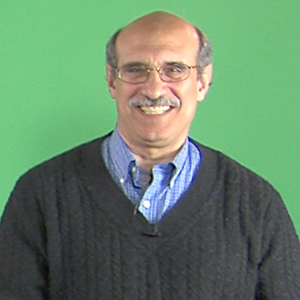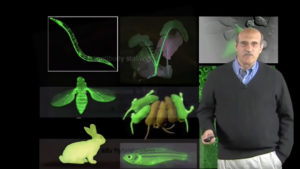Martin Chalfie is a Professor of Biological Sciences at Columbia University where his lab investigates the development and function of touch sensitive nerve cells in C. elegans. In 1988, Chalfie realized that GFP had great potential as a marker of gene expression in living cells and, with his colleagues, he went on to develop this revolutionary technique. He shared the Nobel Prize in Chemistry in 2008 for this work.

Talks with this Speaker
When Stockholm Called
We asked 12 Nobel Laureates to tell us their story of when Stockholm called. (Talk recorded in September 2016)

Audience:
- General Public
- Student
- Researcher
- Educators of H. School / Intro Undergrad
- Educators of Adv. Undergrad / Grad
Duration: 2:42
Developing GFP as a Biological Marker
Martin Chalfie describes the events that led to developing green fluorescent protein (GFP) to track the expression and localization of proteins inside the cell. (Talk recorded in June 2011)

Audience:
- General Public
- Student
- Researcher
- Educators of H. School / Intro Undergrad
- Educators of Adv. Undergrad / Grad
Duration: 14:49



